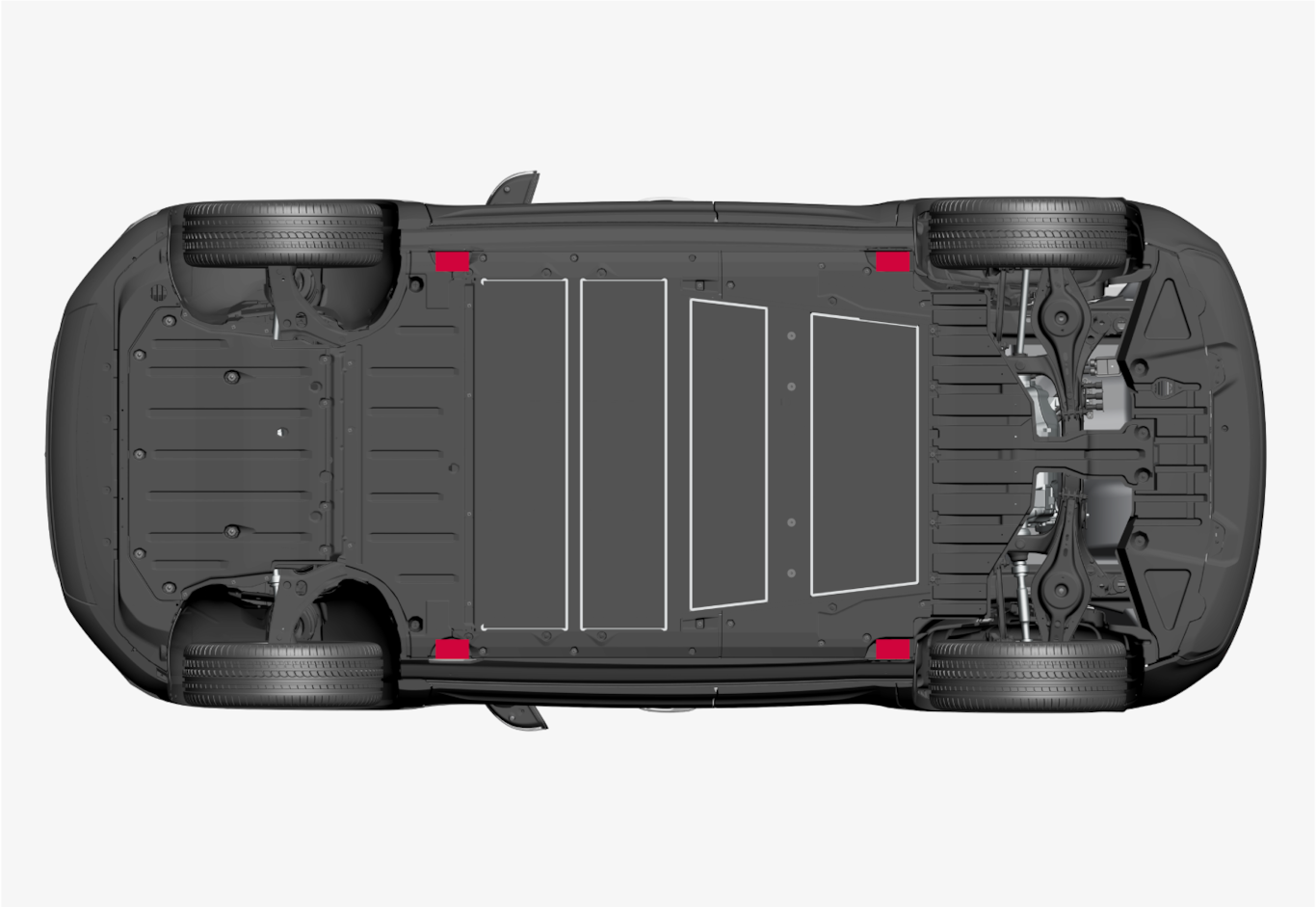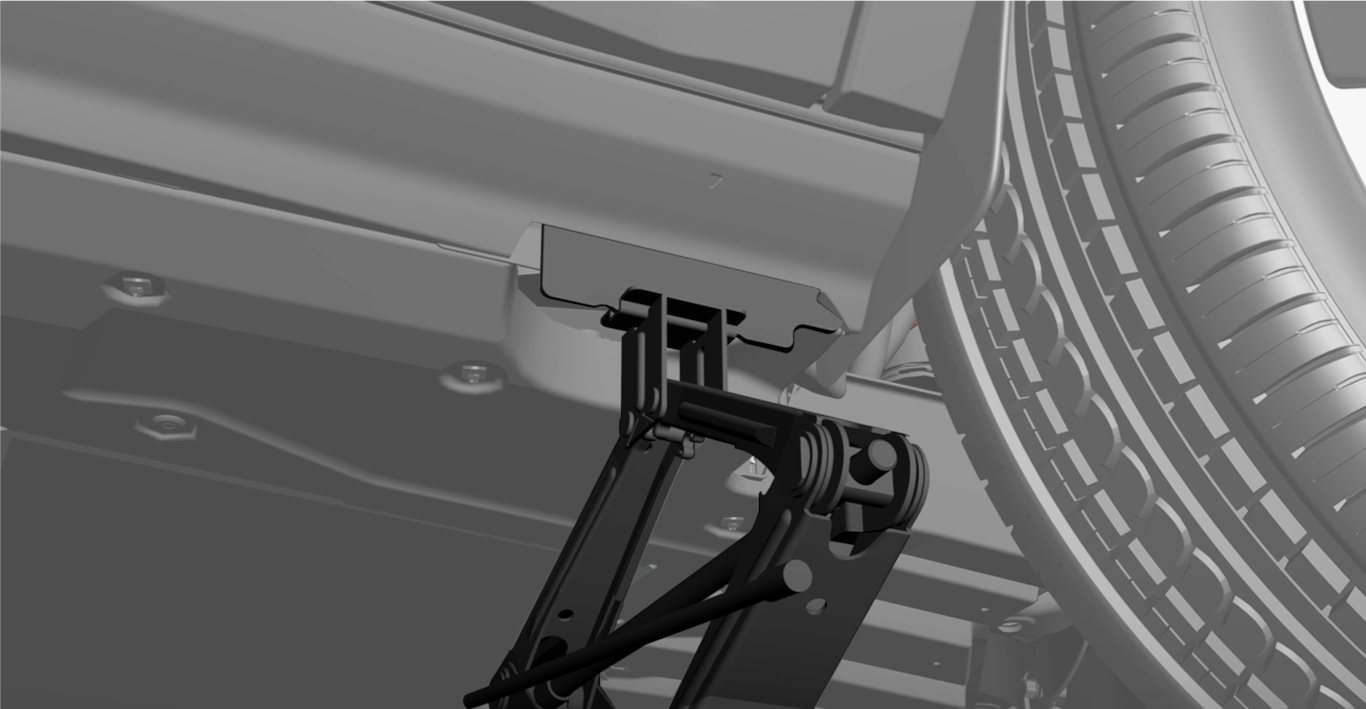The vehicle can be lifted with a jack designed for occasional lifts, with a garage hoist if regular lifts are required, or by authorized workshop personnel who have access to larger lifting devices.
Note
Volvo recommends only using the jack intended for your specific vehicle model. If another jack must be used, follow the instructions supplied with it.
The vehicle's ordinary jack* is only intended to be used in temporary situations for short periods of time, such as when changing wheels in the event of a flat tire. If the vehicle needs to be lifted more frequently, or for a longer period of time than for a wheel change, a garage hoist is recommended. In this case, follow the instructions supplied with the hoist.
Warning
- The vehicle must not be able to roll when it is lifted. Put on the parking brake and select parking mode (P).
- Chock the wheels standing on the ground, using rigid wooden blocks or large stones, both in front of and behind the wheels.
- Use a jack designed for your vehicle model when changing a tire. For any other job, also use stands to support the vehicle.
- Do not use a jack that is in poor condition. Make sure that the threads are lubricated and that it is free of damage and dirt.
- Make sure the jack is stable. The surface must be solid, level and not slippery.
- No objects should be placed between the base of jack and the ground, or between the jack and the lifting point on the vehicle.
- Never let anyone remain in the vehicle while it is raised on a jack. Make sure that passengers stand in a safe place away from the vehicle if the tire needs to be changed in an area with traffic.
- Do not allow any part of your body to be extended under a vehicle supported with a jack.
Lifting points

Warning
Lifting a wheel with a jack
Activate the hazard warning flashers if the vehicle needs to be lifted in an area with traffic.
Place the jack under one of the vehicle's lifting points, with the crank handle pointing straight out from the side of the vehicle.
The locations of the lifting points are marked with triangular arrows along the lower edge of the side of the vehicle. There are special grooves for the jack behind these markings.
Raise the jack until it is touching the vehicle's lifting point. Make sure that the edge of the lifting point fits in the notch on the top of the jack.

Only raise the vehicle as high as needed for the work you will carry out.
Lower the vehicle using the jack immediately after the work has been performed.
When the jack* is not being used, it is recommended that it is stored in the vehicle, protected from moisture and dirt.